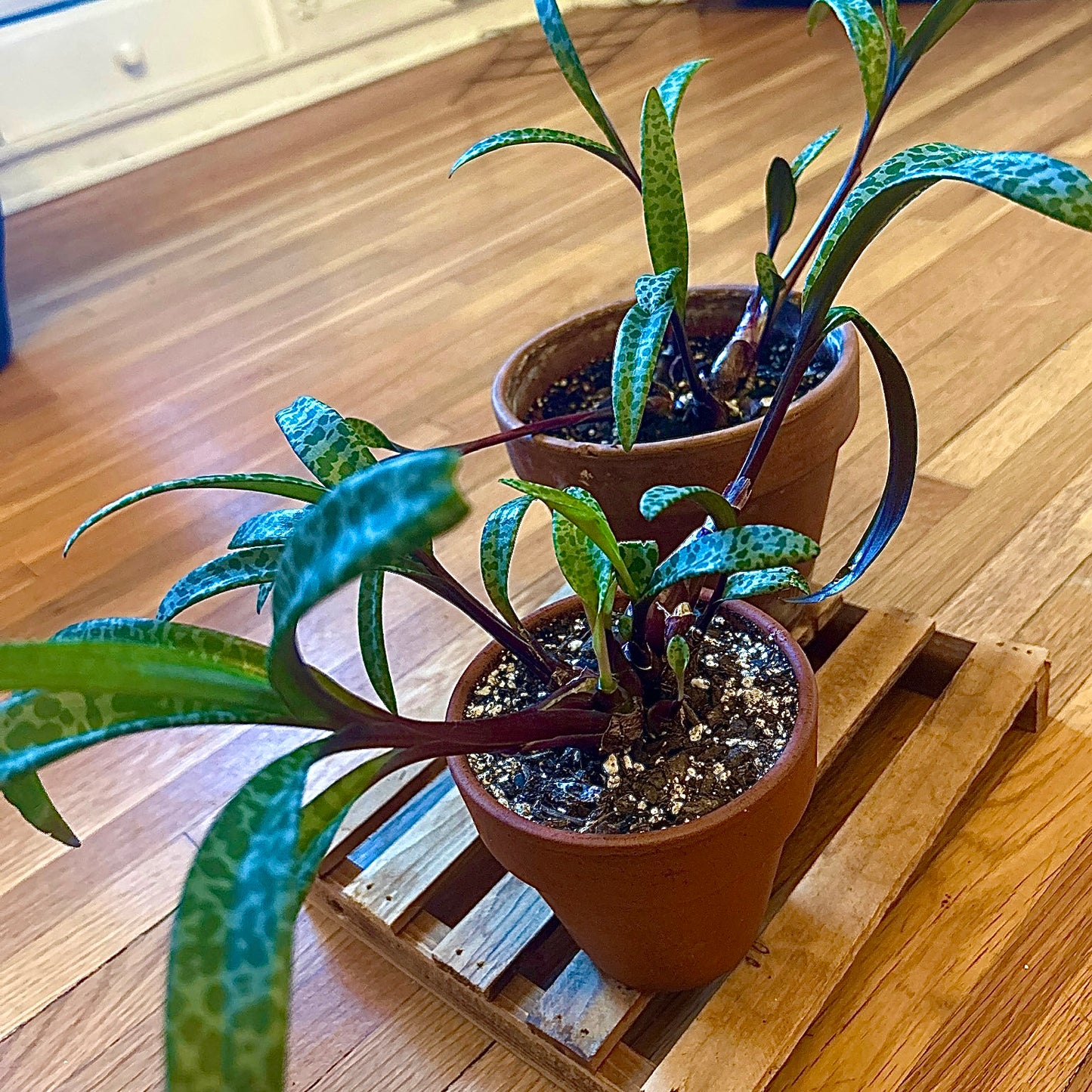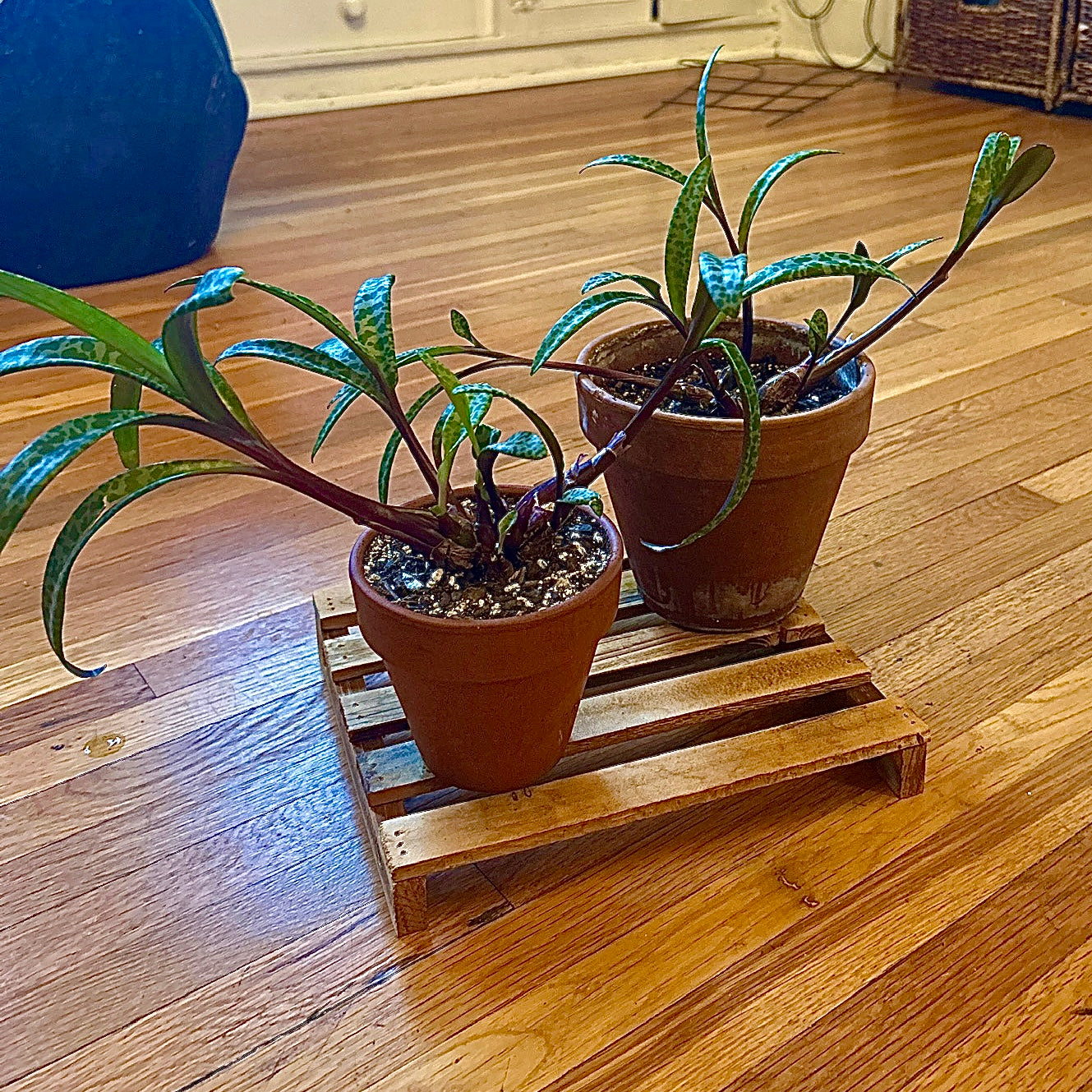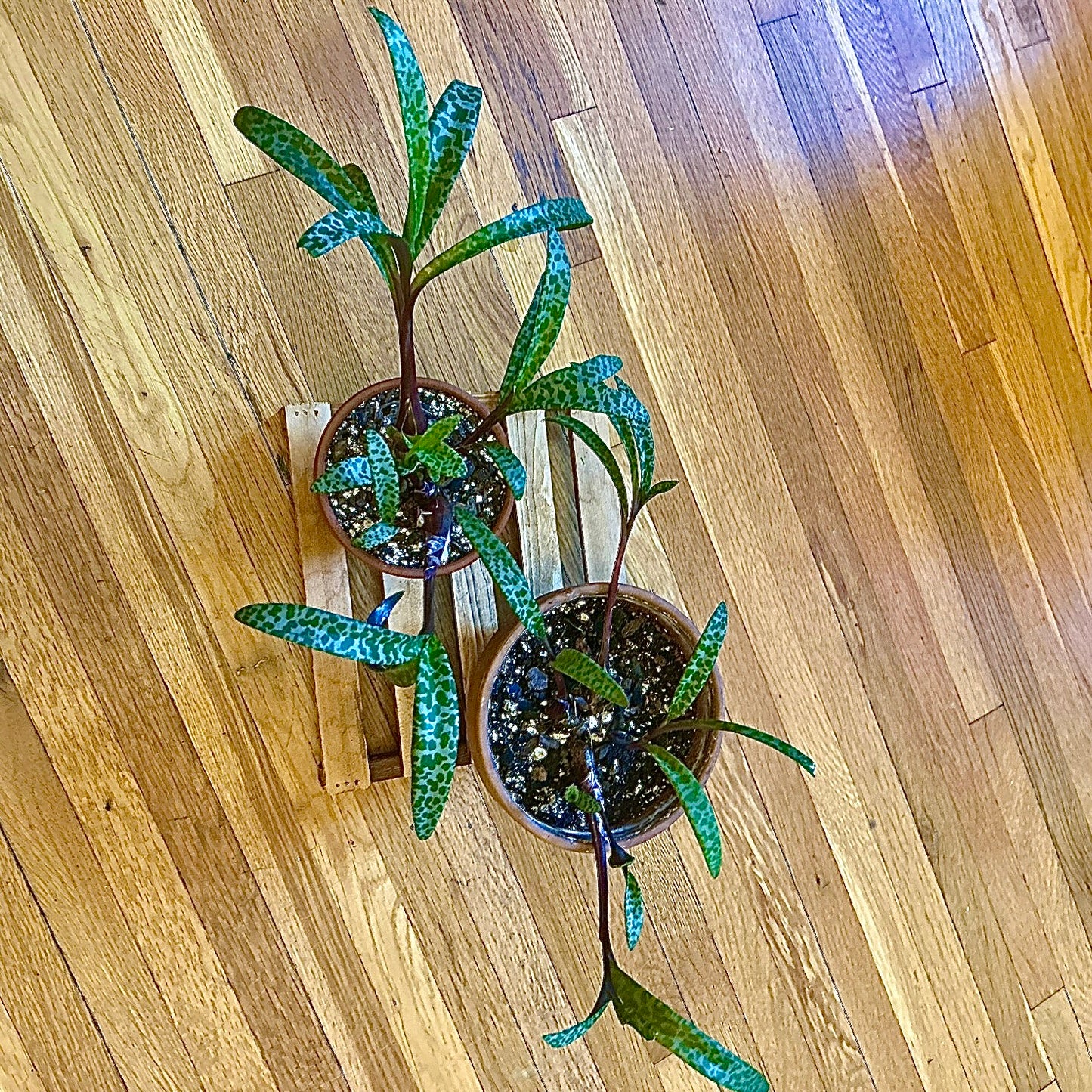Leopard Lily
Leopard Lily
Share
Leopard Lily | Ledeburia Socialis | Silver Squill
Ledeburia Socialis, also known as Leopard Lily or Silver Squill. The Leopard Lily is a unique and visually striking bulbous plant with silvery-green leaves that are adorned with purple undersides. The pattern on her leaves resembles the spots of a leopard, with an iridescent silvery intention. Truly, She is the REGINA GEORGE OF PLANTS. 💅🏻 Not only is it a fast grower, but it's also super easy to care for! ALL HAIL THE QUEEN OF THE PLASTICS! 👑
Plant Care Needs
• ☀️: Thrives in bright, indirect sunlight. Can tolerate some direct sunlight, particularly in the morning or late afternoon.
• 💦: Allow the soil to dry out partially between waterings. Water thoroughly, then let the soil dry completely before watering again. Typically, water every 10-14 days during the growing season and reduce frequency in winter.
• 🪨: Well-draining potting mix is essential. A mixture of peat moss, perlite, and sand provides good drainage and aeration. We recommend Tits & Grit Cacti & Succulent Mix!
• 🌡️: Prefers warm temperatures between 65°F to 75°F (18°C to 24°C). Protect from cold drafts and sudden temperature fluctuations.
• ☁: Thrives in moderate humidity environments. Mist the leaves occasionally or place a shallow tray of water and pebbles near the plant to increase humidity levels.
• ✂: Easily propagated from offsets or bulb division. Separate offsets from the mother plant and plant them in well-draining soil to encourage new growth.
• ⚖: Low maintenance. Suitable for indoor gardeners of all experience levels.
• 💭:
- Avoid overwatering, as it can lead to bulb rot. Ensure adequate drainage to prevent water from pooling around the roots.
- Fertilize sparingly during the growing season with a balanced liquid fertilizer diluted to half strength. Avoid fertilizing in winter.
- Prune dead or yellowing leaves regularly to maintain the plant’s appearance and encourage new growth.
- Leopard Lily may go through periods of dormancy, during which it requires less frequent watering and minimal fertilization. Resume regular care when new growth appears.
Couldn't load pickup availability







